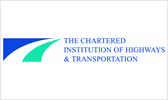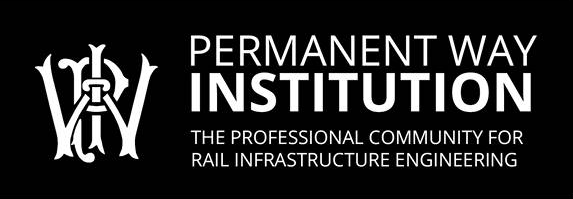Overview
Applications around the world
Civil engineering has impact on almost every aspect of the environment we live in, from building structures to transportation and sanitation. It has applications all over the world, with key skills transferable into other industries.
This is a broad based civil engineering course covering the areas of structures, geotechnics, water engineering, water transportation, computer-aided design, highway engineering and railway engineering.

You'll be required to complete an individual project into a specific area of the programme. This will provide you with the opportunity to pursue independent study and undertake work of an investigative nature, contributing an experimental, analytical, computer-based or fieldwork input.
If you'd like any further information, please contact the course leader Ottavia Rispoli at rispolio@lsbu.ac.uk.
Why Civil Engineering at LSBU?
- star
Ranked 3rd for teaching quality in the UK (Sunday Times Good University Guide 2020).
- check-circle
- Accredited by the Engineering Council. Highly-technical course makes gaining Chartership easier.
- trophy
- 91% overall satisfaction rating among current students (Postgraduate Taught Experience Survey 2023)
- level-up
- Currently engaging in numerous research and development projects with industrial collaborators, providing industry-relevant dissertation topics.
- clock
- Allows for specialism in particular aspects of Civil Engineering, e.g. structures, geotechnics, highways, rail, water transport.
| ModeFull-time | Duration12 months | Start dateSeptember | Application code5287 | Application method Direct to LSBU |
| ModePart-time | Duration24 months | Start dateSeptember | Application code5288 | Application method Direct to LSBU |
| ModeFull-time | Duration16 months | Start dateJanuary | Application code5289 | Application method Direct to LSBU |
| ModePart-time | Duration28 months | Start dateJanuary | Application code5290 | Application method Direct to LSBU |
Course Accreditations
-
ENGC
-

institute-of-civil-engineers.jpg
-

chartered-institute-of-highways-and-transportation.jpg
-

institute-of-structural-engineers.jpg
-

institute-of-highway-engineers.jpg
-

Permanent Way Institution logo
This degree is accredited by the Joint Board of Moderators (JBM) comprising of the Institution of Civil Engineers, Institution of Structural Engineers, Institute of Highway Engineers, the Chartered Institution of Highways and Transportation and the Permanent Way Institution on behalf of the Engineering Council as meeting the academic requirement for Further Learning for registration as a Chartered Engineer (CEng). To hold accredited qualifications for CEng registration, candidates must also hold a Bachelor (Hons) degree that has been accredited as partially meeting the academic requirement for registration as a Chartered Engineer (CEng) See www.jbm.org.uk for further information.
Watch our video to see how you can make yourself at home studying at LSBU.
Location
London South Bank University student union is located at 103 Borough Rd, London SE1 0AA.
If you are visiting our Southwark Campus, you may wish to use our downloadable campus map (PNG File 466 KB). For information on accessibility, see our DisabledGo access guides. See our location page for more details.
Entry Level Requirements
Need further information? Call us on 0800 923 8888 to discuss entry requirements.
The programme is designed primarily for engineers and other construction industry professionals who are seeking to enhance their understanding of advanced civil, structural and geotechnical engineering technology.
You will have an undergraduate Civil Engineering degree with a minimum of a BEng Civil Engineering - 2:2 (or above) or a BSc Civil Engineering - 2:1 (or above) or equivalent work experience.
For applicants whose first degree was not taught and examined in English, an independent IELTS score of 6.5 or equivalent is required.
Choose your country
Select country here:
Missing English and Maths qualifications?
If you do not have the required English and Maths qualifications needed to satisfy the entry requirements for this programme, we have courses available at our partner College that you can take to upskill in these areas. Find out more at South Bank College.
United Kingdom
£11000
Tuition fees for home students
International
£16000
Tuition fees for international students
Tuition fees are subject to annual inflationary increases. Find out more about tuition fees for Undergraduate or Postgraduate courses.
-
Part-time
part-time
MSc Civil Engineering (PT) (JAN) - Year 1
UK fee: £4888.89 International fee: £7111.11 AOS/LSBU code: 5290 Session code: 1PS00 Total course fee: * The full amount is subject to fee increases, the total shown below is based on current fees.
UK: £11000 International: £16000 MSc Civil Engineering (PT) - Year 1
UK fee: £4888.89 International fee: £7111.11 AOS/LSBU code: 5288 Session code: 1PS00 Total course fee: * The full amount is subject to fee increases, the total shown below is based on current fees.
UK: £11000 International: £16000 MSc Civil Engineering (PT) (JAN) - Year 2
UK fee: £6111.11 International fee: £8888.89 AOS/LSBU code: 5290 Session code: 2PS00 Total course fee: * The full amount is subject to fee increases, the total shown below is based on current fees.
UK: £11000 International: £16000 MSc Civil Engineering (PT) - Year 2
UK fee: £6111.11 International fee: £8888.89 AOS/LSBU code: 5288 Session code: 2PS00 Total course fee: * The full amount is subject to fee increases, the total shown below is based on current fees.
UK: £11000 International: £16000 -
Full-time
full-time
MSc Civil Engineering (FT) (JAN) - Year 1
UK fee: £11000 International fee: £16000 AOS/LSBU code: 5289 Session code: 1FS00 MSc Civil Engineering (FT) - Year 1
UK fee: £11000 International fee: £16000 AOS/LSBU code: 5287 Session code: 1FS00
For more information, including how and when to pay, see our fees and funding section for postgraduate students.
See our Tuition Fees Regulations (PDF File 391 KB) and Refund Policy (PDF File 775 KB).
Possible fee changes
The University reserves the right to increase its fees in line with changes to legislation, regulation and any government guidance or decisions.
The fees for international students are reviewed annually and the University reserves the right to increase the tuition fees in line with the RPIX measure of inflation up to 4 per cent.
Postgraduate loan (PGL) for Masters study
If you are starting a Masters course, studying either full- or part-time, you may be entitled to apply for a postgraduate study loan. Find out more at our postgraduate fees and funding section.
Scholarships
We offer several types of fee reduction through our scholarships and bursaries. Find the full list and other useful information on funding your studies on the scholarships and fee discounts page.
Fee status
Please check your fee status and whether you are considered a Home, EU or International student for fee-paying purposes and for our regulatory returns, by reading the UKCISA regulations.
A student can change to writing up status for the purpose of a lower fee when the examination arrangements have been submitted and approved. Examination arrangements are submitted 3 months prior to submission of the thesis for examination. A student only has one year of writing up at the reduced fee that covers submission, viva, and minor corrections. The writing up fee 25/26 is £1,246
International students
The course is not currently open to international students.
International (non Home) applicants should follow our international how to apply guide.
Home
| Mode Full-time | Duration 12 months | Start date September | Application code 5287 | Application method Direct to LSBU |
| Mode Part-time | Duration 24 months | Start date September | Application code 5288 | Application method Direct to LSBU |
| Mode Full-time | Duration 16 months | Start date January | Application code 5289 | Application method Direct to LSBU |
| Mode Part-time | Duration 28 months | Start date January | Application code 5290 | Application method Direct to LSBU |
Postgraduate students and research students should apply through our dedicated application system. Full details of how to do this are supplied on our How to apply section for postgraduate students and our How to apply section for research students.
See our admissions policy (PDF File 1,520 KB) and complaints policy (PDF File 516 KB).
Accommodation
Students should apply for accommodation at London South Bank University (LSBU) as soon as possible, once we have made an offer of a place on one of our academic courses. Read more about applying for accommodation at LSBU.
Finance
It's a good idea to think about how you'll pay university tuition and maintenance costs while you're still applying for a place to study. Remember – you don't need to wait for a confirmed place on a course to start applying for student finance. Read how to pay your fees as a postgraduate student.
Prepare to start
We help our students prepare for university even before the semester starts. To find out when you should apply for your LSBU accommodation or student finance read the How to apply tab for this course.
Enrolment
Before you start your course we’ll send you information on what you’ll need to do before you arrive and during your first few days on campus. You can read about the process on our Enrolment pages.
Teaching techniques include lectures, workshops, tutorials, laboratories, field trips and IT based blended learning. Visiting lecturers from industry contribute in some modules.
- Advanced structural design
In this module, students are instructed in the application of the European structural design codes (Eurocodes) to design steel, concrete and composite steel-concrete elements. Design of specialised structural elements: plate girders, trusses, connections, foundations, prestressed concrete structures, including fire design of structures. Introduction to performance-based design using computer software. Discussion of the sustainability of construction materials. - Soil-structure engineering
This module concerns the study of the interaction of two very different materials (structural and soil). A combination of a classic and modern approach based on numerical methods is delivered for the students to ensure the understanding of the topics. - Finite elements and stress analysis
The module covers two main areas of study: firstly, the finite element modelling of thin walled structures using beam, plate and shell elements. A hand-on approach is used for the finite element modelling exercises using Abaqus finite element analysis software. Secondly, the structural and stress analysis of thin walled beams subjected to axial, bending, shear, torsion and torsion-bending loads. - Highway engineering and operation
This module covers the highway planning and evaluation, geometric design, structural design and maintenance in addition to the highway system characteristics and operations. - Railway Engineering and Asset Management
This module covers the geometric design, structural design, and maintenance of railways in addition to the railway system characteristics and operations. The module also covers design life extensions and asset management techniques for railway infrastructure. - Water engineering
This unit covers fundamentals of surface water hydrology, open channel flow, basics of dam engineering and design of embankment dam, design of spillway and energy dissipater, groundwater hydrology, the principles of groundwater flow, well hydraulics, and contaminants transport in the groundwater. - Project
This module is one third of the course and is an individually supervised piece of work that is typically either a research project or an innovative design exercise. The theme is related to topics covered on the course.
| Module description | Assessment | |
|---|---|---|
| Advanced Structural Design | 70% Examination | 30% Coursework |
| Finite Elements and Stress Analysis | 50% Examination | 50% Coursework |
| Railway Engineering and Asset Management | 50% Examination | 50% Coursework |
| Soil-Structure Engineering | 70% Examination | 30% Coursework |
| Water Engineering | 70% Examination | 30% Coursework |
| Highway Engineering and Operations | 50% Examination | 50% Coursework |
| Project (three modules value) | 100% Coursework | |
Careers
Employability Service
At LSBU, we want to set you up for a successful career. During your studies – and for two years after you graduate – you’ll have access to our Employability Service, which includes:
- Free employability workshop and events for student all year round, more details can be found on our event section.
- Online board where you can see a wide range of placements: part-time, full-time or voluntary. You can also drop in to see our Job Shop advisers, who are always available to help you take the next step in your search.
- LSBU Careers Hub offering group workshops on CVs, interview techniques and support, guidance on future careers, as well as loads of career resources, connecting you with employers, exciting events, 1-1 support and relevant workshops.
Our Student Enterprise team can also help you start your own business and develop valuable entrepreneurial skills.
Employment prospects for graduates of these courses are very good, especially in view of the upturn in new infrastructure projects in the UK and overseas. Successful students enter into a variety of positions within the construction industry, working in a design office, with contractors and in local authorities.
Accreditation
This degree is accredited by the Joint Board of Moderators (JBM) comprising the Institution of Civil Engineers, Institution of Structural Engineers, Institute of Highway Engineers, and the Chartered Institution of Highways and Transportation on behalf of the Engineering Council as meeting the requirements for Further Learning for a Chartered Engineer (CEng) for candidates who have already acquired a partial CEng accredited undergraduate first degree.*

- The Institution of Civil Engineers is a qualifying body, a centre for the exchange of specialist knowledge, and a provider of resources to encourage innovation and excellence in the profession.

- The Chartered Institution of Highways and Transportation is concerned specifically with planning, design, construction, maintenance and operation of land-based transport systems and infrastructure. It has 12,000 members.

- The Institution of Structural Engineers is the world's leading professional body for qualifications and standards in structural engineering. It has 27,000 members in 105 countries.

- The Institute of Highway Engineers (formerly the Institute of Highway Incorporated Engineers) is the professional institution for practitioners in highway and traffic engineering offering Engineering Council registration and professional development support.

- The Permanent Way Institution is the professional institution for rail infrastructure engineering, offering Engineering Council registration and professional development support.
See the JBM website for further information.
*It should be noted that candidates completing the MSc who hold an underpinning accredited IEng degree or a nonaccredited bachelor degree will need to apply for an academic assessment to determine whether they will meet the educational base for CEng registration.


